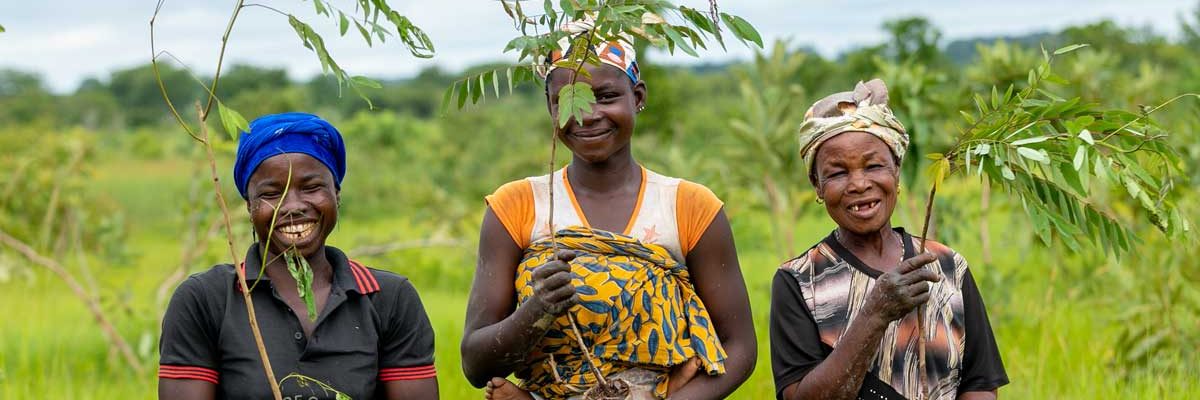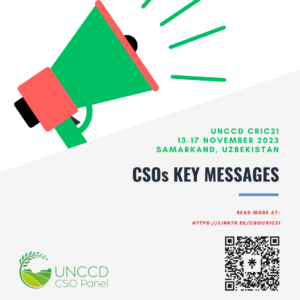Implementing The Great Green Wall initiative: civil society’s role
In Mali, the Great Green Wall initiative in the Sahara and the Sahel is aiming, by 2025, at developing local communities through an innovative and inclusive approach consisting on fusing such actions as: fighting desertification and climate change, conserving biodiversity, and improving agro-pastoral and forestry production.
The goal is greening Mali and to contribute to the people’s and livestock’s sustainable food security. The implementation of this vision will depend on the mobilization of the stakeholders involved in order to be able to intervene in an integrated fashion within different development domains that include environmental, agricultural, hydrological, pastoral, forestry, and fishing sectors, as well as socio-economic sectors such as education, health, and renewable energy.
It is in this perspective that the Management Department of Mali’s Great Green Wall is setting up a coalition re-grouping all the stakeholders called upon to set up projects and programs for this effort. Among these stakeholders, those that are best suited for running the Great Green Wall’s (GGW) activities are the civil society organizations.
Given their profiles as local agents, their proven experience in community organizing and capacity building, their competencies in planning, in project and program implementation, including the mobilization of non-public, additional and innovative financial resources, CSOs need to:
• play the role as intermediaries between the GGW and communities in the implementation of projects and programs for this initiative
• organize awareness-raising and advocacy campaigns for integrating Mali GGW’s strategic plan into the plans of communities situated on the GGW’s pathway
• get heavily involved in the implementation of the GGW’s strategic plan through the mobilization of financial resources
• support the GGW in order to capitalize on all the experience from sustainable management of lands, from fighting desertification, and from improving food security
The financial opportunities that the Conventions on Climate, Biodiversity, and Desertification create, through the Green Fund, the Climate Fund, and the LDN Fund, may well represent niches to be explored by Malian CSOs, to support the implementation of the Mali GGW strategic plan.
Land degradation neutrality: “From targets to action…what will it take?”
In the course of the Round Table on Land Degradation Neutrality more than 30 countries took the floor. Some used the opportunity to inform delegates about their commitments to join the global program on setting national voluntary LDN target, and many others shared their experiences in setting their LDN targets, improving their SLM strategies and programs, and addressing challenges related to mobilizing technical, scientific and financial resources.
Development partners highlighted some critical issues on targeting and/or implementing LDN at the national level, such as commitment, project design and risk mitigation.
GEF and World Bank assured participants of their commitment to continue supporting countries in implementing their LDN target. The take-away points that were discussed at the Round Table are summarized below:
• Countries demonstrated a strong commitment to achieve SLM and sustainable development through the implementation of LDN and SDGs
• There are a lot of financial resources available which need bankable projects to contribute to the achievement of LDN
• Leveraging public fund to gather private investment implies shared responsibilities and guarantees
• Involvement of all stakeholders, and notably CSOs, women and youth is a must to ensure ownership of projects and programs
• Resource mobilization requires Governments to ensure an enabling environment and functioning rule of law
• Mainstreaming is a unique way to ensure co-benefits and address the objectives of the three Rio Conventions together in a comprehensive and inclusive approach.
It is important to note that the launch of the Fund reflects significant evolution in the financial world, making it possible to link the private, finance and public sectors. The view was expressed that the private sector is not sufficiently represented in the UNCCD processes; however, this representation is evolving. The implementation of the LDN Fund has to be supported by a capacity building program to improve country capacities and skills on delivering bankable transformative projects.
CSOs expressed their view that there is a need for recognition of the role of small-scale projects. They welcomed the statement of the GEF on the importance of involving local and indigenous communities and women.
With equal enthusiasm, they welcomed the opening statement made by the EU for the inclusion of CSOs in the implementation of the strategic framework and LDN. To meet LDN targets at country level, there is a need for mechanisms to allow access to funding for local actors and small-scale projects on SLM.
There is also a need to consolidate scientific knowledge on the state of land in countries and local territories, and to gather data that can anchor action to science in the support of national and local communities.
In this context, CSOs greatly appreciate China’s invitation and the invitations of other countries for an exchange and transfer of knowledge between all. Land degradation will only be achievable if all stakeholders are included, and CSOs call upon all countries to “put CSOs into the Frame”.
Photos Credit: TREE AID






